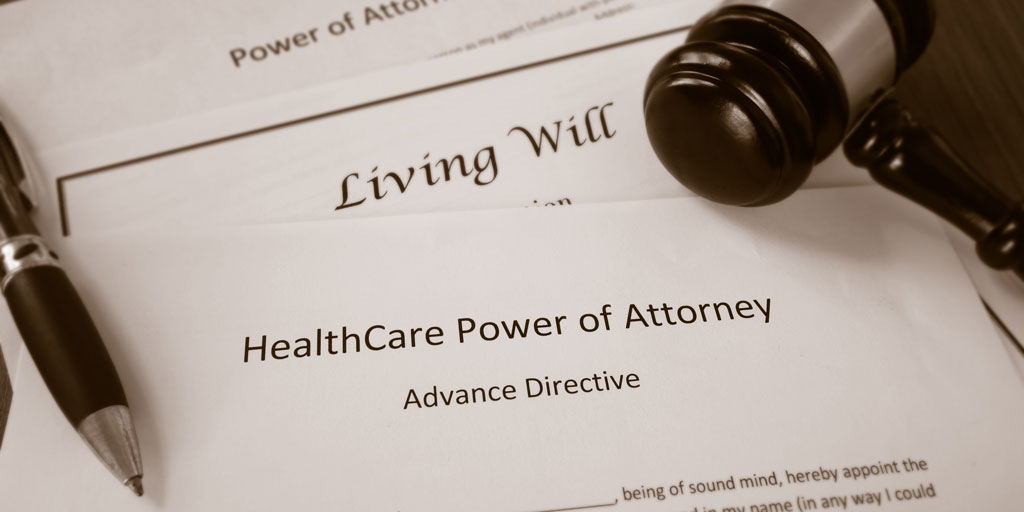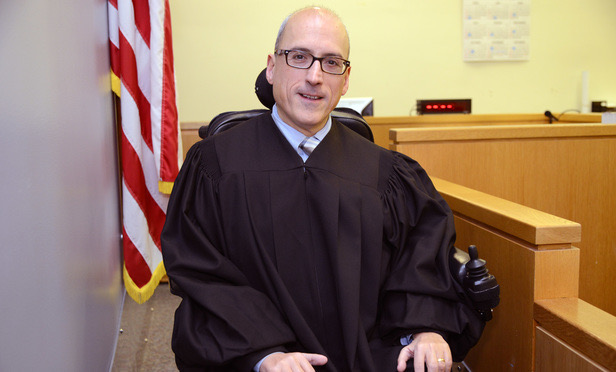
Advance Healthcare Directives: Make Your Wishes Known
By Donna Albrecht | Friday, March 26, 2021
5 Second Summary
For individuals with neuromuscular disease, advance healthcare directives, which state your wishes for medical treatment, are essential for yourself and dependents.
The saying “not making a choice is making a choice” is especially true when it comes to making future plans for yourself or your child with a neuromuscular disease. If you don’t document your wishes for unforeseen circumstances or health emergencies, choices that are important to you might be made by others.
Cynthia Clyburn, a social worker at the MDA Care Center at the Penn Medicine Department of Neurology in Philadelphia, often speaks with families about what important documents they should have to protect themselves and their children in the event they can’t speak for themselves.

Cynthia Clyburn is a social worker at the MDA Care Center at the Penn Medicine Department of Neurology in Philadelphia.
“Facilitating conversations about the future is so important,” she says. “Our goal is to empower individuals with neuromuscular conditions to take charge of how they wish to be treated and who they’d appoint as an advocate.”
Essential documents
A will is arguably the most important document to have. A will states your wishes for handling your money, property, and guardianships in the event of your death. This is especially important if you have children or other dependents. If you die without a will, a court will decide who should care for them.
For individuals with neuromuscular disease, advance care directives, which state your wishes for medical treatment, may be equally important.
There are different types of advance care directives. In a living will, you can provide guidance on what types of treatments you want to receive in circumstances where you cannot express informed consent. A healthcare power of attorney can appoint a person to make healthcare decisions for you if you can’t.
“It is up to the individual to decide what type of advance care directives fit their needs best,” says Cynthia. “I also advise people to identify the medical treatments they wish to receive in an emergency or end-of-life situation.”
To cover these situations, you’ll need a portable medical order. This is a set of medical orders, such as a do-not-resuscitate (DNR) order, that tells medical providers what types of life-saving interventions you do and do not want in specific circumstances.
Look out for dependents
Another document to consider if you have a dependent with a neuromuscular disease is a memorandum of intent. This is a letter you write and keep with your other documents. In it, you describe the supports and services your dependent receives and how you wish those, and other personal matters, to be handled in your absence. The memorandum of intent does not replace a will or other legal documents, but it can supplement those documents and help in various situations.
For example, when my daughters, who lived with spinal muscular atrophy (SMA), were in school, the district policy was that students who were not met by a guardian at the bus stop would be dropped off at the police station. With the agreement of their school aides, I gave the school a memorandum of intent specifying that if I were not available for any reason, they were to be released to the care of their aides. It was used once when I couldn’t pick them up during a family medical emergency.
Plan ahead
While planning for unforeseen circumstances is important, don’t forget to plan for the future.
“Medical advances are leading to better outcomes for children who have neuromuscular conditions,” says Robert Pipia, Judge of the District Court of Nassau County, NY, who lives with an undiagnosed neuromuscular disease and serves on MDA’s Board of Directors. “You need to plan for that person to be productive as an adult in a work environment.”

Robert Pipia is a judge in the District Court of Nassau County, NY.
Financial tools and savings options can help you reach your goals. (Read Quest’s “Plan for a Bright Future.”) In addition, while your child is in school, investigate your state Rehabilitation Department benefits to learn what vocational or secondary education assistance may be available.
Getting help makes sense
While it is possible to create wills, advance care directives, and other documents on your own, it’s a good idea to get help from legal and financial professionals. They can help you navigate the document names and requirements, which vary from state to state. They also can help you avoid potential pitfalls, such as leaving money to a family member in a way that prevents the beneficiary from receiving government benefits, like Medicaid.
For many people, the biggest barrier to preparing essential documents is that it’s difficult to think about the situations in which they might be needed. That’s where your medical team can help.
“These decisions don’t have to be made alone,” Cynthia says. “Many people have conversations with family members, particularly those that they are identifying as a future healthcare proxy or power of attorney. If they feel uncomfortable leading these discussions, they can always ask for support from their doctor, nurse, or social worker.”
Finally, make sure your doctors (for advance care directives), attorney, spouse, or executor (for wills and trusts) know where to find your important documents if they are needed.
Donna Albrecht is the author of “Raising a Child Who Has a Physical Disability” (Wiley). She lives with her husband and border collie near San Francisco.
Terms to Know
Advance care directive: A legal document that allows you to set out written wishes for your medical care and to name a person to make sure those wishes are carried out. (Related documents: living will, healthcare power of attorney, durable power of attorney for healthcare, healthcare proxy)
Conservator: Someone appointed by a judge to oversee the affairs of an incapacitated person, often as directed by an advance directive. A conservator who manages financial affairs is called a “conservator of the estate.” One who takes care of personal matters, such as healthcare and living arrangements, is known as a “conservator of the person.” Sometimes, one conservator is appointed to handle all these tasks. (Related terms: guardian, committee, curator)
Do-not-resuscitate (DNR) order: A document that states your wish not to receive any cardiopulmonary resuscitation efforts if your heart or breathing stop.
Memorandum of intent: A document outlining the needs of your dependent, including the services they currently receive and your preferences for their future life. This is considered to be informational, not legally binding like a will.
Physicians order for life-sustaining treatment (POLST) form: A form that can be filled out to document emergency and end-of-life treatment preferences. This form becomes an official medical order once signed by you and a doctor. (Related document: physicians order for scope of treatment [POST] form)
Portable medical order: A set of medical orders covering a person’s wishes regarding life-saving medical intervention in emergency or end-of-life situations. (Related documents: DNR order, POLST form, POST form)
Will: The document that designates what will happen to your money and property, who will be the guardian of any dependents, and who will be responsible for making sure your wishes are carried out in the event of your death.
Resources
Five Wishes provides easy-to-understand materials to help people consider and communicate how they wish to be cared for at the end of their life. They have special booklets written to help children, adolescents, and their families document their wishes.
Military One Source has resources and services for military families who have a family member with special needs.
National POLST provides information about advance care planning and medical order forms in different states.
Special Needs Alliance specializes in maximizing and preserving benefits, protecting assets, and assuring lifelong care. Their website includes a list of qualified attorneys.
Special Needs Answers offers planning guides, such as “How to Write a Memorandum of Intent,” and a directory of financial planners who work with special needs clients.
Next Steps and Useful Resources
- Find information about end of life decisions here.
- Access an Emergency Room Alert Summary here.
- MDA’s Resource Center provides support, guidance, and resources for patients and families. Contact the MDA Resource Center at 1-833-ASK-MDA1 or ResourceCenter@mdausa.org
- Stay up-to-date on Quest content! Subscribe to Quest Magazine and Newsletter.
TAGS: Caregiving, Insurance, Parenting, Resources, Web Exclusive
TYPE: Featured Article
Disclaimer: No content on this site should ever be used as a substitute for direct medical advice from your doctor or other qualified clinician.




